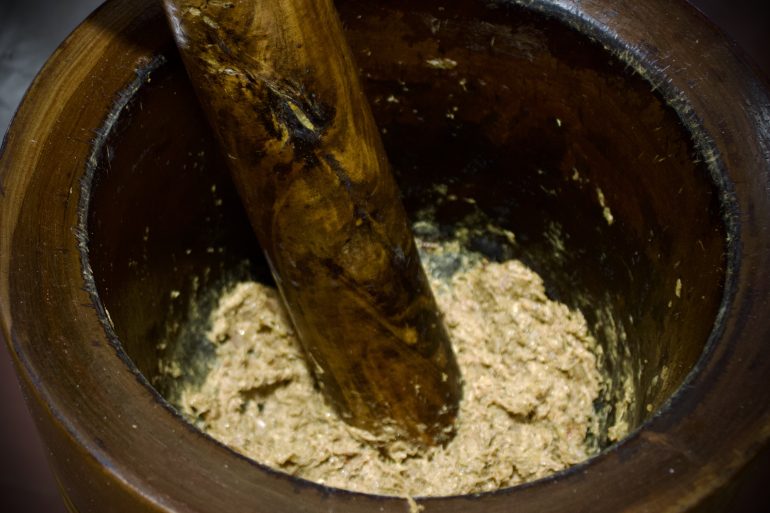Paraguay’s culinary heritage takes centre stage as so’o josopy, the traditional dish of meat pounded in a mortar, is officially declared a national food and cultural treasure. The Paraguayan Senate’s unanimous support for this recognition has sparked pride across the country, especially among those working to preserve ancestral practices.
So’o Josopy: Tradition in every bite
So’o josopy, which means “pounded meat” in Guaraní, is a dish deeply rooted in Paraguay’s rural history. Made from beef crushed in a wooden mortar known as angu’a, the meat is then cooked with simple seasonings to create a rich, comforting broth. Some versions use so’o piru (sun-dried beef), adding another layer of flavour and tradition.
The technique is entirely manual, passed down through generations, and reflects Paraguay’s rich blend of indigenous and colonial culinary heritage. This pounded meat preparation also features in other traditional dishes, most notably soyo, a popular Paraguayan soup known for its bold meat flavour and hearty mix of vegetables.
A historic declaration
On 17 June 2025, the Paraguayan Senate passed Declaration No. 294, officially recognising so’o josopy as a national dish and element of cultural significance. The statement highlights the importance of preserving both the recipe and its traditional method of preparation, especially the use of the angu’a, a symbol of rural life and culinary identity.
This move was partly inspired by a cultural campaign that included testimonies and video materials showcasing the value of so’o josopy, including participation from Mario Campos, owner of Empanadas Ña Posho, whose empanadas feature this iconic filling.
Towards cultural heritage status
The declaration also calls on the National Secretariat of Culture to initiate procedures to include so’o josopy in Paraguay’s intangible cultural heritage list. This step would not only protect the dish itself but also honour the surrounding cultural practices, manual preparation, communal cooking, and the oral traditions behind it.
This recognition follows a broader trend of elevating Paraguayan cuisine on the global stage. Paraguay is increasingly making its mark on the global stage, demonstrating that it truly values the everyday traditions that shape its national identity. Earlier this year, Vori Vori soup was named the best soup in the world by World of Statistics, further highlighting the richness and pride of Paraguayan cuisine.
With the Senate’s declaration, so’o josopy becomes more than just a beloved meal, it becomes a national emblem. A dish that tells a story, preserves memory, and brings Paraguayans together, one bowl at a time.


